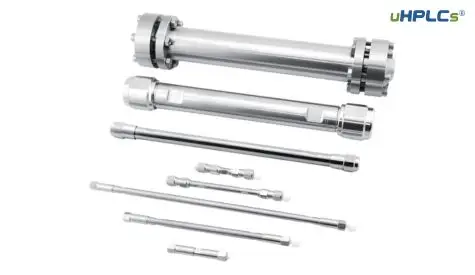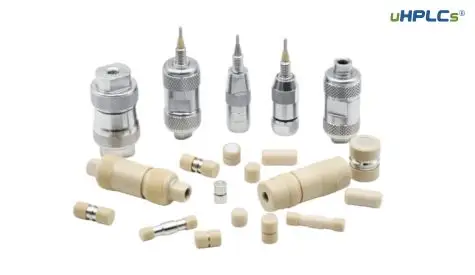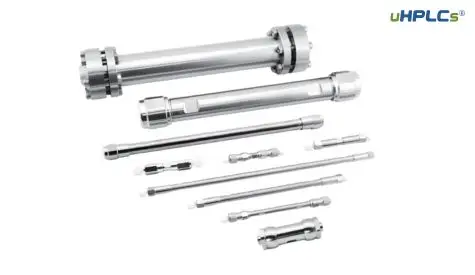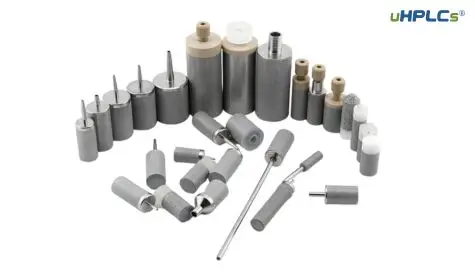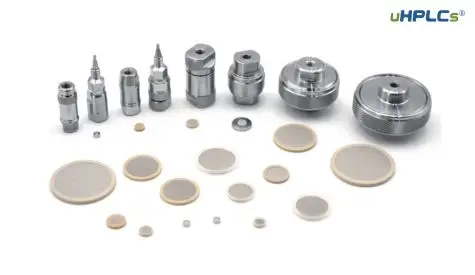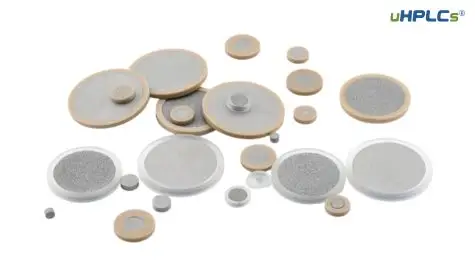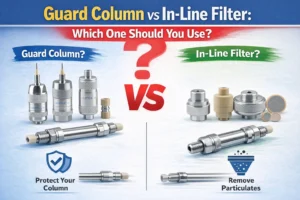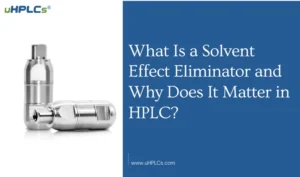High-Performance Liquid Chromatography (HPLC) is a powerful analytical technique used in a wide range of applications. HPLC systems are used to separate, identify, and quantify the individual components of a complex mixture. In this blog post, we will explore the basics of HPLC systems, why they are important, and some of their main applications.
What is an HPLC System?
An HPLC system is a sophisticated analytical instrument that allows for the separation of complex mixtures into individual components. The system consists of several key components, including a pump, injector, column, detector, and data system. The pump is responsible for moving the sample through the column, while the injector introduces the sample into the system. The column is a specialized piece of equipment that separates the components of the sample, and the detector detects and quantifies those components. The data system records and analyzes the data generated by the detector.
Why Use an HPLC System?
HPLC systems are used in a wide range of applications because they offer several significant benefits. One of the most important benefits of HPLC systems is their ability to separate complex mixtures into individual components. This separation allows for the identification and quantification of specific components, which is critical in many scientific fields.
HPLC systems are also highly sensitive, allowing for the detection of even trace amounts of components in a sample. This sensitivity is essential in many scientific applications, including drug discovery and development, environmental analysis, and forensic science.
Finally, HPLC systems are highly versatile, offering a wide range of separation methods and detection techniques. This versatility allows for the customization of the system to meet the specific needs of the application.
How Much Does an HPLC System Cost?
High-Performance Liquid Chromatography (HPLC) is a powerful analytical technique that is widely used in the scientific community. If you are considering purchasing an HPLC system, you may be wondering how much it will cost. In this blog post, we will explore the factors that influence the cost of an HPLC system and provide some general pricing information to help you budget for your purchase.
Factors Influencing HPLC System Cost
The cost of an HPLC system can vary depending on a number of factors, including:
- System Complexity: The more complex the system, the more expensive it will be. A basic HPLC system may cost several thousand dollars, while a more advanced system can cost tens of thousands of dollars.
- Detector Type: The type of detector you choose will also affect the cost of the system. UV-Vis detectors are the most common and least expensive option. However, more specialized detectors, such as mass spectrometers, can significantly increase the cost of the system.
- Pump Type: The type of pump you choose can also affect the cost of the system. Isocratic pumps are less expensive, while gradient pumps are more expensive but allow for more complex separations.
- Column Type: The type of column you choose will also affect the cost of the system. Longer, more specialized columns can be more expensive.
- Brand and Model: Different brands and models of HPLC systems can vary in price. More well-known and established brands may be more expensive than newer or lesser-known brands.
HPLC System Pricing
As mentioned above, the cost of an HPLC system can vary depending on the factors listed. However, to give you a general idea of pricing, here are some rough estimates:
- Basic HPLC System: $5,000 – $10,000
- Mid-Range HPLC System: $10,000 – $25,000
- Advanced HPLC System: $25,000 – $50,000+
Keep in mind that these are just estimates, and your actual costs may vary depending on your specific needs and budget.
Main Applications of HPLC Systems
HPLC systems are used in a wide range of scientific applications, including:
Drug Discovery and Development
HPLC systems are an essential tool in drug discovery and development. They are used to identify and quantify active pharmaceutical ingredients (APIs), characterize the purity and stability of drugs, and optimize the formulation and manufacturing process.
Environmental Analysis
HPLC systems are used in environmental analysis to detect and quantify pollutants and other contaminants in water, soil, and air samples.
Forensic Science
HPLC systems are used in forensic science to detect and quantify drugs, metabolites, and other substances in biological samples.
Food and Beverage Analysis
HPLC systems are used in food and beverage analysis to detect and quantify vitamins, amino acids, and other nutrients and contaminants.
Quality Control
HPLC systems are used in quality control to verify the identity, purity, and potency of pharmaceuticals, as well as to detect any impurities or degradation products.
Conclusion
An HPLC system can be a significant investment, but it is an essential tool for many scientific applications. By understanding the factors that influence the cost of an HPLC system and having a general idea of pricing, you can budget accordingly and make an informed decision when purchasing an HPLC system.
If you have any questions or would like more information about HPLC systems, please contact us. Our team of experts is available to help you find the right system for your needs and budget.



